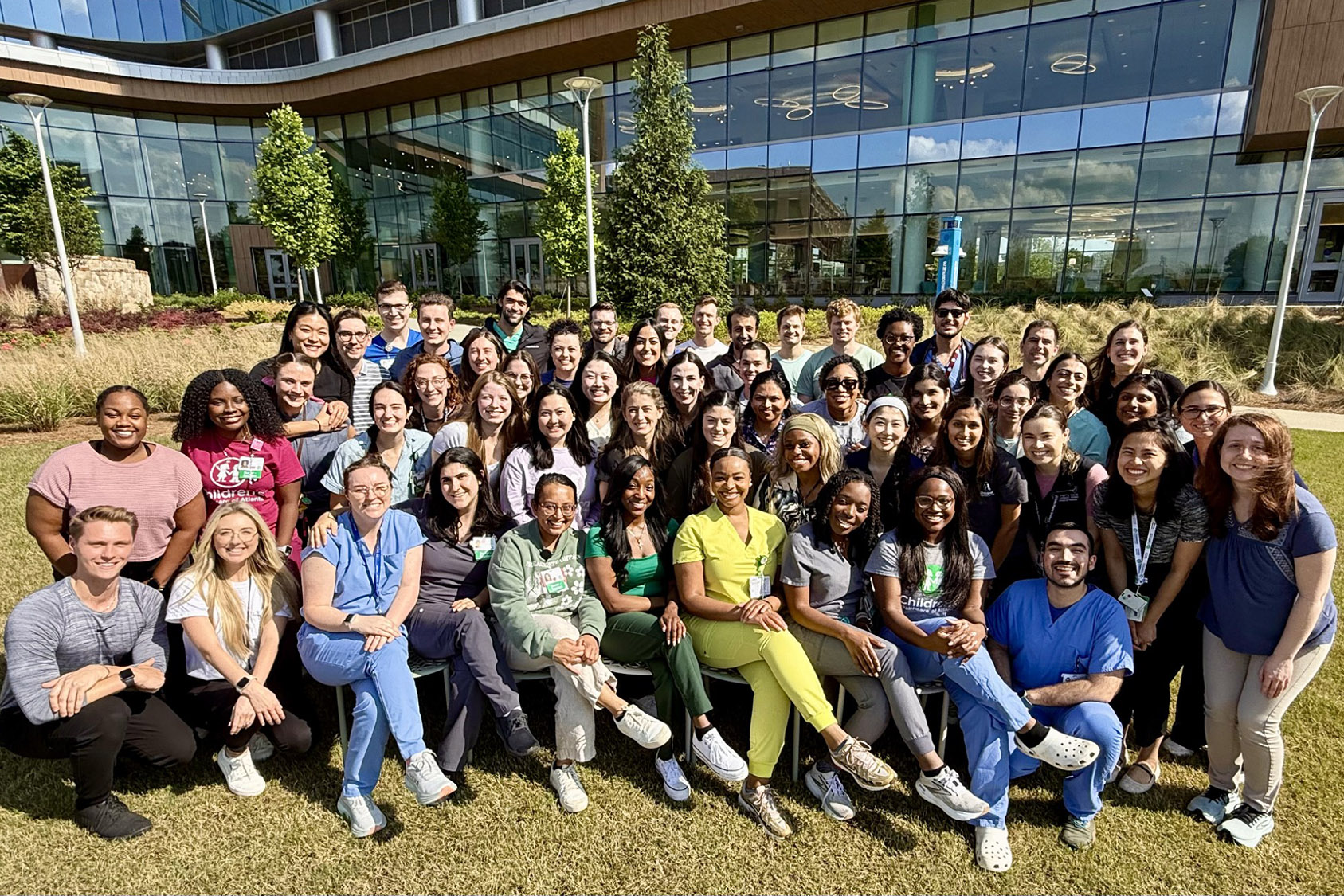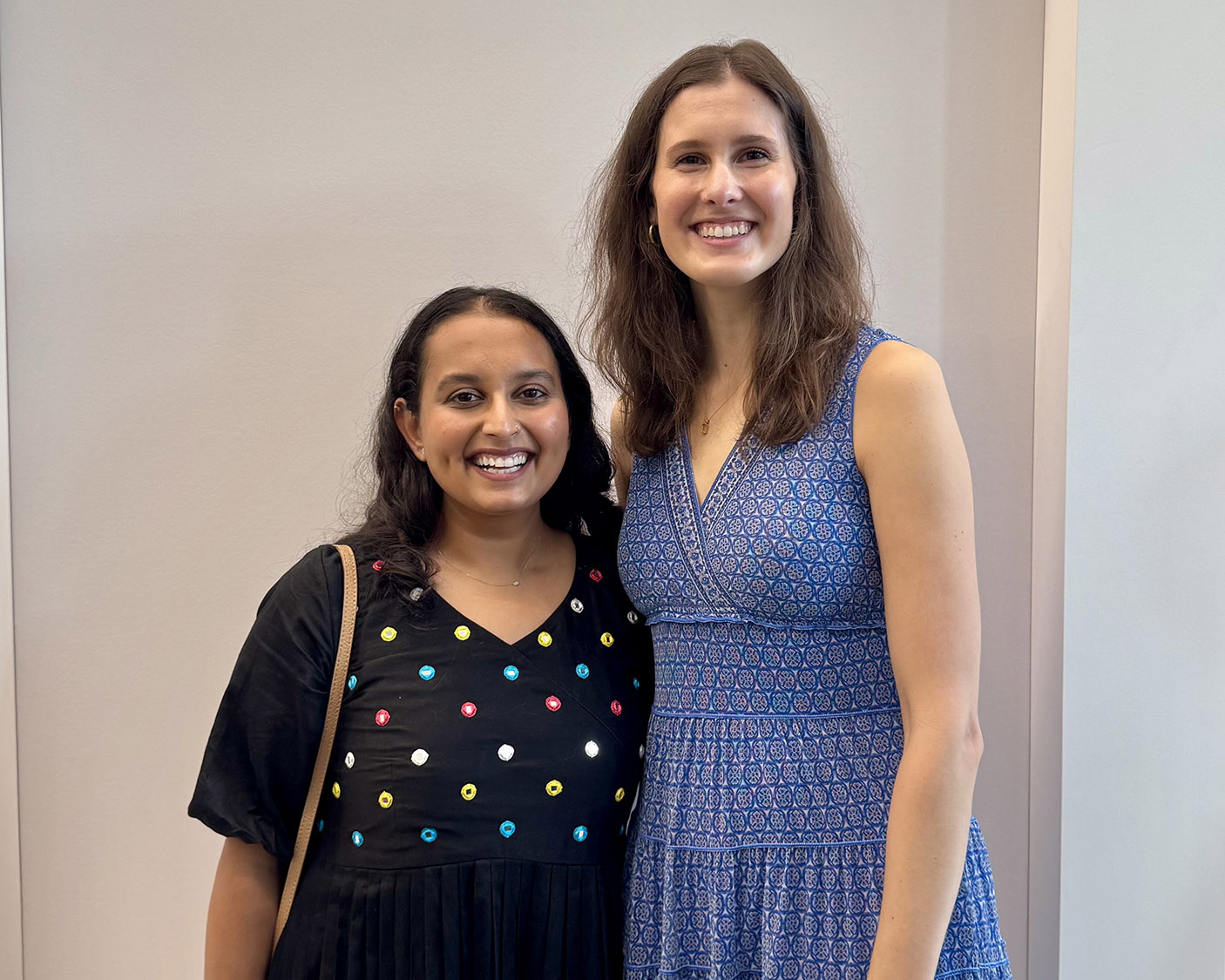Mission Statement
To recruit, cultivate, and maintain a network of residents, fellows, and attendings where the primary goal is to provide quality, socially-conscious care to the patients and families representative of the greater Atlanta area. We strive to implement a residency program that delivers equitable care while training physicians to lead in the communities they serve.
Our Mission
The Emory Pediatrics Residency Program strives to produce pediatricians who possess outstanding clinical competence and a lifelong passion for inquiry. Graduates of the Emory program are well-prepared to enter general pediatric practice, subspecialty training, or a career in teaching and research. Through exposure to a large population of patients, an accomplished cadre of supervising faculty, and a comprehensive curriculum, our graduates are equipped to become future leaders within the field of pediatrics.
Our residents provide front-line care to over a half-million patients annually at Children’s Healthcare of Atlanta and the Grady Health System. Our diverse clinical sites give residents experience with pediatric conditions both common and complex, in patients representing a range of cultural and socioeconomic backgrounds.
We foster an environment of care and compassion for patients, families, and colleagues. Our 400+ faculty members are committed to resident education in all forms, including bedside teaching, didactics, and research mentorship.
We hope you find this site informative and welcome any questions you might have about our program. Thank you for your interest and congratulations on selecting pediatrics as a career choice!
Schedules
The Emory University Pediatrics Residency Program recently transitioned to an X+Y curriculum. In our X+Y curriculum, residents rotate through a 4+1 system where 4 weeks of an “X” block are followed by 1 week of a “Y” block. X blocks are typically hospital-based experiences and include inpatient wards, ICU, ED, and subspecialty experiences. Y weeks are focused on outpatient experiences and include continuity clinic, adolescent medicine, community medicine, and developmental pediatrics.
PGY-1
Intern year focuses on improving information synthesis and medical decision-making. First-year residents hone their skills during 3 months of inpatient General Pediatrics. They are also exposed to various inpatient and outpatient subspecialties. The ED and NICU rotations provide residents with opportunities to learn about medical care and procedures in high-acuity settings. During Y weeks, first-year residents learn about child and adolescent care, developmental pediatrics, and management of behavioral health problems in children.
- Arthur M. Blank Hospital General Pediatric Wards (6 weeks)
- Hughes Spalding General Pediatric Wards (2 weeks)
- Night Team (6 weeks)
- Term Nursery (4 weeks)
- NICU (4 weeks)
- GI, Pulmonary, & Cardiology (4 weeks inpatient, 2 weeks outpatient)
- Hematology/Oncology (2 weeks inpatient, 1 week outpatient)
- Hughes Spalding ED (4 weeks)
- Elective (3 weeks)
- Y week (5 days, occurs every 5th week in the schedule)
PGY-2
Second year allows residents to further cultivate their abilities at managing high-acuity patients. Residents spend 2 months in the PICU, 1 month in the NICU, and 1 month in a higher-acuity ED setting. This further cultivates their abilities at managing high acuity patients. PGY-2 residents also assume supervisory responsibilities on subspecialty services and general pediatrics night team rotations and grow in their medical autonomy. Through Y weeks, residents continue to hone their skills in primary care and community experiences. With the support of faculty mentors, they begin to tailor their training through the creation of an individualized curriculum.
- PICU (8 weeks)
- NICU (4 weeks)
- Arthur M. Blank Hospital ED (4 weeks)
- Night Team Senior (6 weeks)
- Subspecialty (6 weeks) – includes inpatient and outpatient experiences
- Individualized Curriculum (9 weeks, 3 of which is call-free)
- Y week (5 days, occurs every 5th week in the schedule)
PGY-3
Third year is a time for residents to prepare for their careers as independent physicians. PGY-3 residents spend 8 weeks supervising residents on General Pediatrics wards and further develop their autonomy in providing medical care. With ongoing mentor guidance, they continue their individualized curriculum with dedicated with time for career development as they pursue their desired career goals.
- Arthur M. Blank Hospital General Pediatric Wards (8 weeks)
- Hughes Spalding General Pediatric Wards (1 week of days, 1 week of nights)
- Nights (4 weeks)
- Back-Up (3 weeks)
- Hughes Spalding ED (4 weeks)
- Subspecialty (6 weeks) – includes inpatient and outpatient experiences
- Individualized Curriculum (9 weeks, 6 weeks of which are call-free)
- Career Development (1 week)
- Y week (5 days, occurs every 5th week in the schedule)
Continuity Clinic
Residents spend 2 full days during their Y weeks in the Pediatric Primary Care Clinic at Hughes Spalding or other partnered community clinics.





